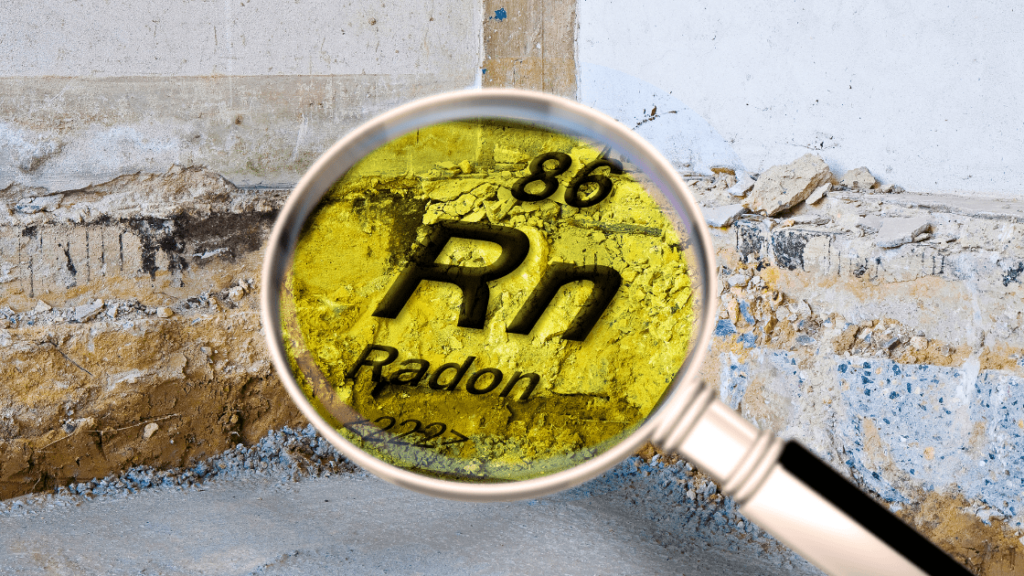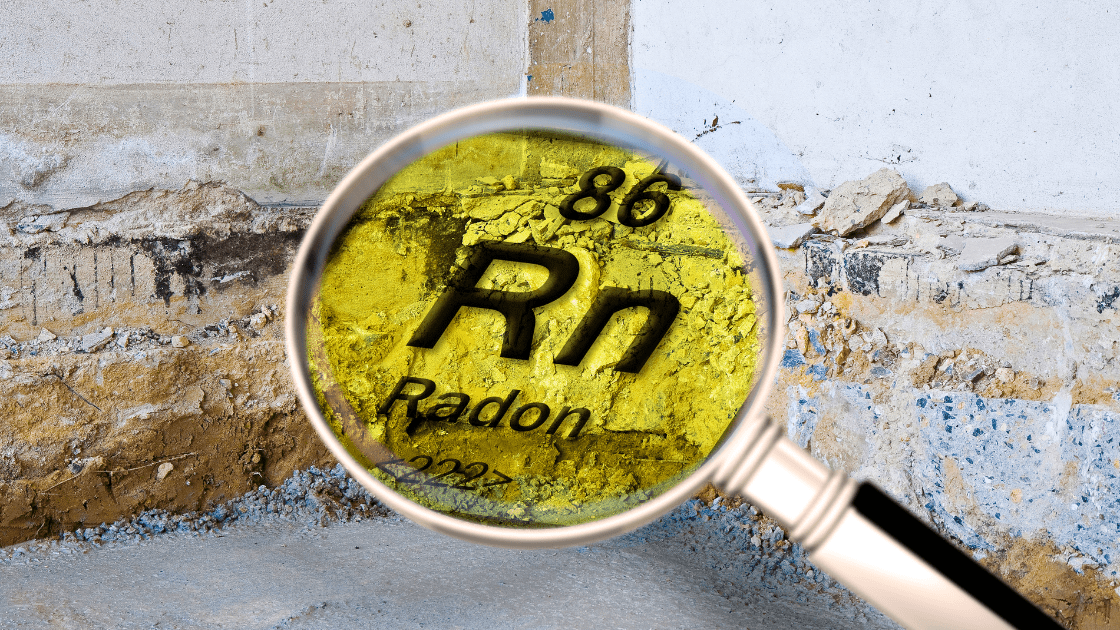
Have you ever heard of radon? You’re not alone if you haven’t. While it is present in all of our homes and can even be harmful, many people have never heard of it and may not realize it’s a problem until they come to sell the home. Radon is something we should all know about, but it’s especially important for homeowners.
Today, we’ll guide you through what radon is, how it builds up in buildings, the saleability of a high-radon home, and what you can do for your high-radon home.
What is Radon?
Radon is a radioactive gas that comes from the natural decay of uranium found in almost all soils. It moves up through the ground and into your home through cracks and holes in the foundation. While low levels of radon are quite normal and not a cause for concern (all homes will have some), high levels can be harmful over time, especially since it’s a leading cause of lung cancer among non-smokers. Some areas of the world have higher radon levels than others, but the government monitors radon levels to check they are safe.
How does radon enter my home?
The simple answer is through the ground. Radon is in the soil and rocks around your home, and it can seep in through cracks in your foundation, gaps around service pipes, construction joints, or even the water supply. The highest levels are usually found in enclosed spaces like basements and first-floor rooms that are not well-ventilated.
Can opening doors and windows disperse the radon in my home?
Opening doors and windows or running an air conditioning system can increase ventilation in your home, which can temporarily reduce radon levels. This is because radon, being a gas, disperses rapidly in fresh air.
However, these methods are rarely a long-term solution to a radon problem because our weather is often not conducive to having our doors and windows open regularly year-round. If you already have a working HVAC system installed and/or open windows regularly and still have a build-up of radon, you’ll likely need a radon mitigation system installed.
How do I know if my home has high radon levels?
The only way to know for sure if your home has high radon levels is to test for it. You can hire a professional, or you can buy a DIY radon test kit online or from a home improvement store. The DIY approach is cost-effective and straightforward—just make sure to follow the instructions closely.
What should I do if my home tests high for radon?
The EPA considers a radon level of 4 picocuries per liter (pCi/L) or more as high. But don’t worry, having high radon levels is not a dead-end road. You can take steps to lower radon levels, often called radon reduction or radon mitigation. This typically involves installing a vent pipe system and fan, which pulls radon from beneath the house and vents it to the outside.
Can I sell my home if it has high radon levels?
You can sell a home with high radon levels, but you’ll need to disclose this information to potential buyers. Disclosure laws vary by state, so be sure to understand your obligations (in Massachusetts you should disclose any known problems, and radon specifically will usually be on the seller’s statement of the property’s condition). Some buyers might be deterred by high radon levels, but others may be willing to mitigate the radon themselves.
Is it worth dealing with high radon levels before I sell my home?
Reducing high radon levels before selling not only makes your home safer but can also make it more attractive to potential buyers. Imagine you’re a buyer and you have two similar houses to choose from – one has high radon levels, and the other has been tested and treated for radon. Chances are, you’ll lean towards the latter.
The cost of radon mitigation varies significantly depending on the specifics of your home, the extent of the problem, and the type of system installed. Generally speaking, however, a radon system will set you back $800 – $2,500.
Can the government help if my home has high radon levels?
Some states have programs that offer financial assistance for radon mitigation, and there may be tax credits available as well. It’s worth doing a little research to find out what help you might be eligible for.
Massachusetts doesn’t offer any specific programs at the moment (though it may be worth reaching out to your local government for advice), but they do recommend you get a radon professional from either the American Association of Radon Scientists and Technologists/National Proficiency Program or the National Radon Safety Board.
Can I sell my home if I cannot afford to fix the high radon issue?
Yes, you absolutely can sell your home even if you can’t afford to address the radon issue yourself. It’s important to remember that you will need to disclose a known radon problem to potential buyers, as transparency is key in the real estate process.
You can still sell your home through traditional means if your home has a radon issue (i.e., through a realtor), but you may need to adjust your price accordingly.
If a radon issue isn’t the only thing working against your home, you may want to consider selling it to a cash buyer who buys properties in “as-is” condition, as they’ll be well acquainted with fixing all the issues your home may have.
Selling can be a stressful process, especially when you’re dealing with additional challenges like high radon levels. Fortunately, we buy homes in as-is condition, meaning we’ll be happy to make a cash offer on your Massachusetts home, regardless of its problems.
We believe every home has potential and we’re committed to making the selling process as smooth and worry-free as possible for you. We’d be happy to give you a no-obligation cash offer for your Massachusetts home. Click here to learn more or to get a cash offer for your home.

